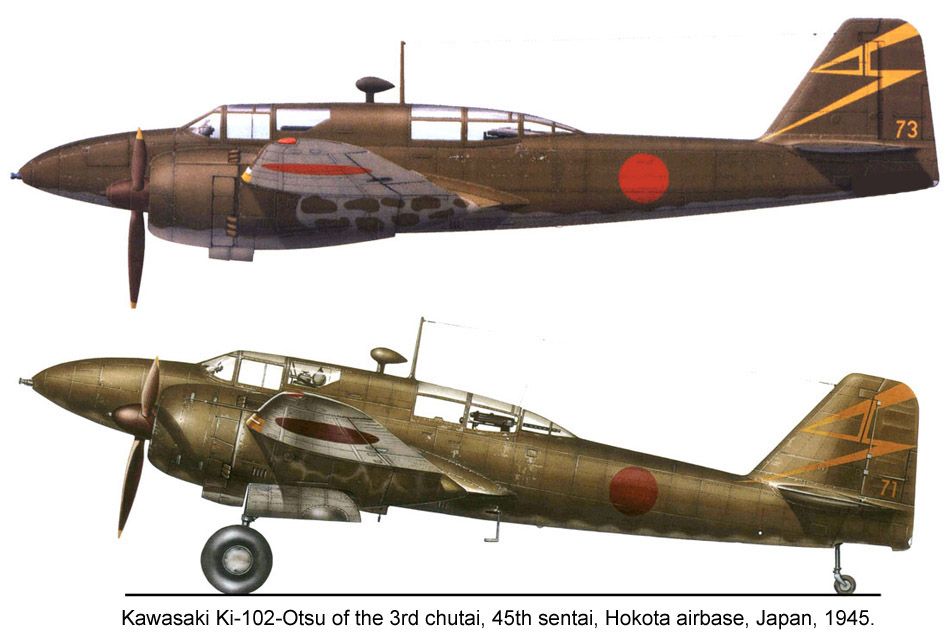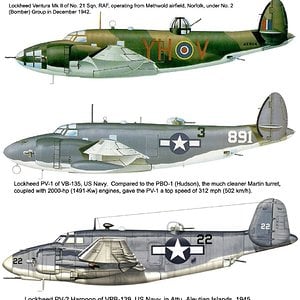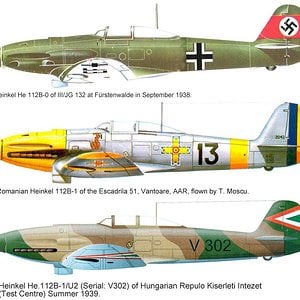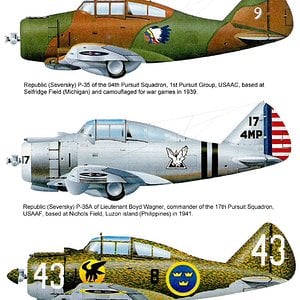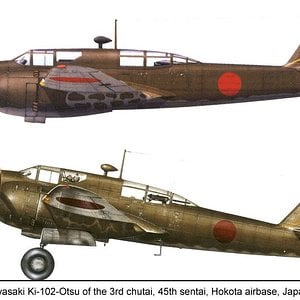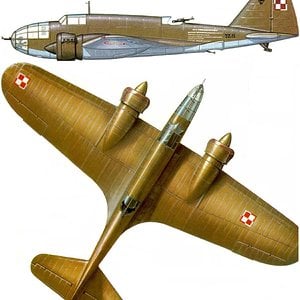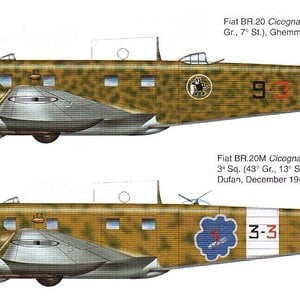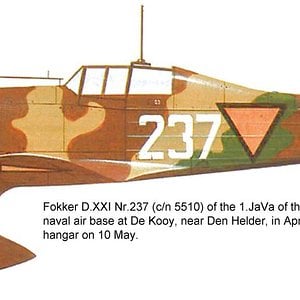Navigation
Install the app
How to install the app on iOS
Follow along with the video below to see how to install our site as a web app on your home screen.
Note: This feature may not be available in some browsers.
More options
You are using an out of date browser. It may not display this or other websites correctly.
You should upgrade or use an alternative browser.
You should upgrade or use an alternative browser.
The Kawasaki Ki-102 was a Japanese warplane of World War II. It was a twin-engine, two-seat, long-range heavy fighter developed to replace the Ki-45 Toryu. Three versions were planned: the Ki-102a day fighter, Ki-102b ground-attack and Ki-102c night fighter. This aircraft's Allied reporting name was "Randy".
It entered service in 1944, but saw limited action. The main type (102b) was kept in reserve to protect Japan, although it did see some limited duty in the Okinawa campaign. It was kept out of front line service because it was hoped that it would be the carrier of the Igo-1-B air-to-ground guided missile when the Allied invasion of Japan occurred.
Source:
Info: Wikipedia
http://en.wikipedia.org/wiki/Kawasaki_Ki-102
Profile: Wings Palette
http://wp.scn.ru/en/
It entered service in 1944, but saw limited action. The main type (102b) was kept in reserve to protect Japan, although it did see some limited duty in the Okinawa campaign. It was kept out of front line service because it was hoped that it would be the carrier of the Igo-1-B air-to-ground guided missile when the Allied invasion of Japan occurred.
Source:
Info: Wikipedia
http://en.wikipedia.org/wiki/Kawasaki_Ki-102
Profile: Wings Palette
http://wp.scn.ru/en/

